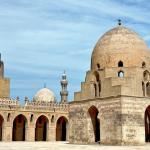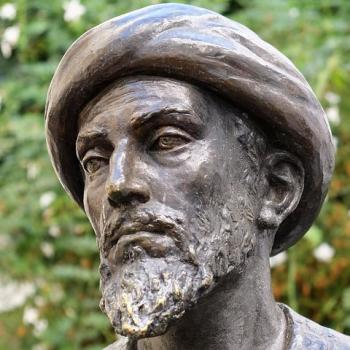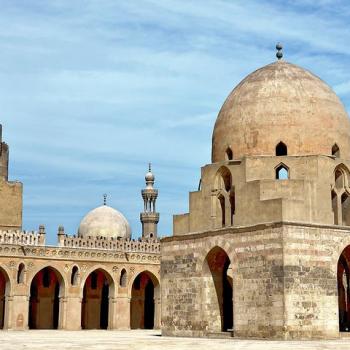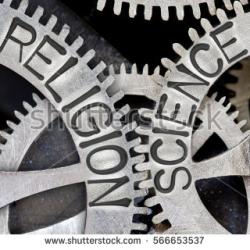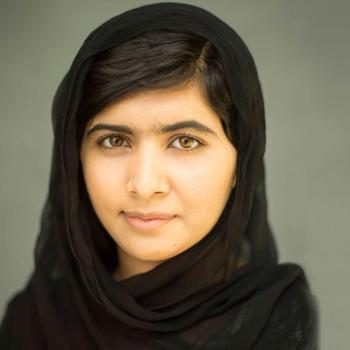 The Islamic golden age spanned from the eighth century to the fourteenth century, and according to many others lasted until around the sixteenth century. This is an era when the Muslim world thrived due to its emphasis on scholarship, discovery, invention and inclusivity, and was considered a hub for scientific advances, and spread of knowledge in the fields of physics, chemistry, medicine, architecture, metaphysics, philosophy, geometry and mathematics among others.
The Islamic golden age spanned from the eighth century to the fourteenth century, and according to many others lasted until around the sixteenth century. This is an era when the Muslim world thrived due to its emphasis on scholarship, discovery, invention and inclusivity, and was considered a hub for scientific advances, and spread of knowledge in the fields of physics, chemistry, medicine, architecture, metaphysics, philosophy, geometry and mathematics among others.
This post is the first of a series on the Muslim civilization during the Islamic golden age.
1001 inventions, a British non-profit organization, has held many exhibits, films, shows and published written educational material on the Islamic golden age. Their work is accomplished with a network of supporters and endorsements that include National Geographic, the Prince of Wales and UNSECO.
The enduring Legacy of Muslim Civilizations sheds new light on the forgotten history- and the innovations-of these men and women who helped pave the way for the European Renaissance and the modern world as we know it. [1]
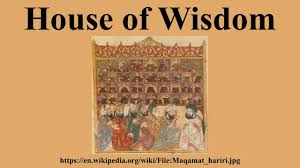 In the year 786 C.E., Muslim Abbasid Caliph, Harun Al-Rashid established the baitul hikma, or House of Wisdom in the capital city of Baghdad. Scholars from around the world gathered here to advance modern knowledge. Muslim youth would start with a study of the Qur’an. Many of the giants from this era were motivated to seek, and advance knowledge, inspired by the Qur’an’s instructions to ponder, as well as a Hadith from Prophet Muhammad that urged the faithful to seek knowledge, even if they must go to china.
In the year 786 C.E., Muslim Abbasid Caliph, Harun Al-Rashid established the baitul hikma, or House of Wisdom in the capital city of Baghdad. Scholars from around the world gathered here to advance modern knowledge. Muslim youth would start with a study of the Qur’an. Many of the giants from this era were motivated to seek, and advance knowledge, inspired by the Qur’an’s instructions to ponder, as well as a Hadith from Prophet Muhammad that urged the faithful to seek knowledge, even if they must go to china.
Their work started with translation of the Greek philosopher’s work into Arabic. They also incorporated the work of scholars from China, Persia and India. As a result, Baghdad became the center of attraction for discovery and inventions in numerous fields.
A little while ago I published an article, titled Muslim Nobel Prize Winners- The Best Kept Secret, highlighting how little known are some of the Muslim Nobel prize winners. It also indicated the relatively small contribution by the Muslims to this distinguished list.
Richard Dawkins, a renowned atheist revolutionary biologist, has been critical of people of faith, including a lack of Muslim engagement in the advancement of Science, as exemplified by this tweet on August 8, 2013.
All the world’s Muslims have fewer Nobel Prizes than Trinity College, Cambridge. They did great things in the Middle Ages, though.
But is this a “Muslim problem” or a third world issue?
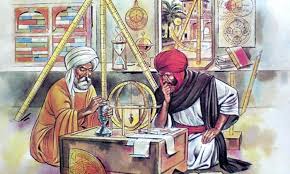 If the Nobel prize was awarded back during the Islamic golden age, Muslims would have had monopoly on it.
If the Nobel prize was awarded back during the Islamic golden age, Muslims would have had monopoly on it.
Martin Kramer, an American-Israeli scholar from Shalem College in Jerusalem acknowledged the Islamic golden age and the contribution of the Muslim scholars in various fields with immense contribution to the modern understanding in an article that was published in the Jerusalem post on December 31, 1999 at the turn of the millennium.[2]
This supremely urbane civilization cultivated genius. Had there been Nobel Prizes in 1000, they would have gone almost exclusively to Moslems. One laureate certainly would have been the brilliant polymath Biruni (973-circa 1050)—astronomer, mathematician, mineralogist, botanist, linguist, and historian.
He then goes on to list many of the great contributions of the Muslim scholars from the golden age, including Ibn Sina (Avicenna) and noted:
Medicine also inspired Moslem genius, most notably in the person of the philosopher Ibn Sina, or Avicenna (980-1037). He championed the science of the Greeks, and the practice of medicine in Europe rested upon his Canon of Medicine right through the 15th century. European universities taught anatomy in Arabic terminology for nearly that long.
So, is this a “Muslim problem” or is it that in the last few centuries, the center of knowledge and education has shifted to the west, hence majority of the Nobel laureates are from the western world. In other words, there are not very many Nobel prize winners from the Christian Latin world. This is not a criticism of the Latin Americans or the Christians, but I think the same issues they face are the reasons why Muslims in the third world are not as engaged in Science and literature.
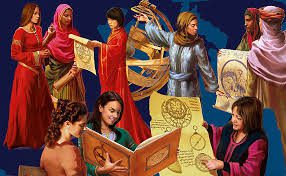 You may wonder why the Muslims excelled in so many areas until about five hundred years ago. The simplified answer is that their focus was clearly on scholarship, discovery and inclusiveness. In the golden age, Muslims, Jews and Christians, and men and women worked together for the common goal.
You may wonder why the Muslims excelled in so many areas until about five hundred years ago. The simplified answer is that their focus was clearly on scholarship, discovery and inclusiveness. In the golden age, Muslims, Jews and Christians, and men and women worked together for the common goal.
So what has caused the Muslim scholarship and the golden age to decline?
The answers are complex. Many have pointed out that the end of the era started with Mongol invasion of Baghdad in 1258 C.E., followed by the Crusades. One of the first things they did was to burn hundreds of thousands of books and the libraries. Gradual loss of power was followed by loss of the centers of excellence.
The Muslim leadership and communities in the golden age were more open minded, and built a culture of inclusivity. They did not hesitate to incorporate the wisdom from the Indo-China societies, or from Persia, Greece, and engaged with the Christians and the Jews openly.
Scientific exchange was considered normal. Many of the scholars drew their inspiration from the Qur’an. The Qur’an was not considered just a book for “barakah” but rather a book to ponder- and ponder they did.
Many of the words used in English came from the Arabic roots- such as Algebra, Almanac, alkali and alchemy. Ibn Sina’s ‘Canon of Medicine’ was considered the gold standard at the medical universities in Europe for over 500 years. Al Biruni determined the radius and the circumference of the earth almost precisely- some 1000 years ago. Jabar Ibn Hayyan is considered the father of Chemistry. Algebra is derived from Arabic Al Jabr, from the work of Al Khwarizmi in the 9th century.
Fast forward to 2018
The Islamic golden age is long gone. We the Muslims need to engage in a collective introspection to figure out what made the past Muslim societies the center of wisdom and knowledge, and why we are no longer the top performers. Have we become exclusivists in our societies? Have we stopped pondering? Have we not misused the Qur’an for our selfish interpretations to suit our needs and pre-set beliefs? Have we not rendered the Qur’an a book to stay in the book shelves to bring ‘barakah’? Have we stopped learning about the great thought leaders of the yesteryears, and instead have latched on to the self-proclaimed “religious scholars”? Is critical thinking part of the discourse and the educational system?
Only after serious contemplation can we even think about going back to the golden age of scholarship, wisdom and learning. May be then the Nobel Prize winner distribution will more closely reflect the 22% world population Muslims make.
The work of the Muslim civilizations during the golden age still remains unknown, specially in the west. In my future post, I will highlight the work of some of the giants from the Islamic golden age and their impact on modern science and culture.
[1] 1001 Inventions- The Enduring Legacy of Muslim Civilization. 3rd Edition
[2] http://martinkramer.org/sandbox/reader/archives/islams-sober-millennium/


